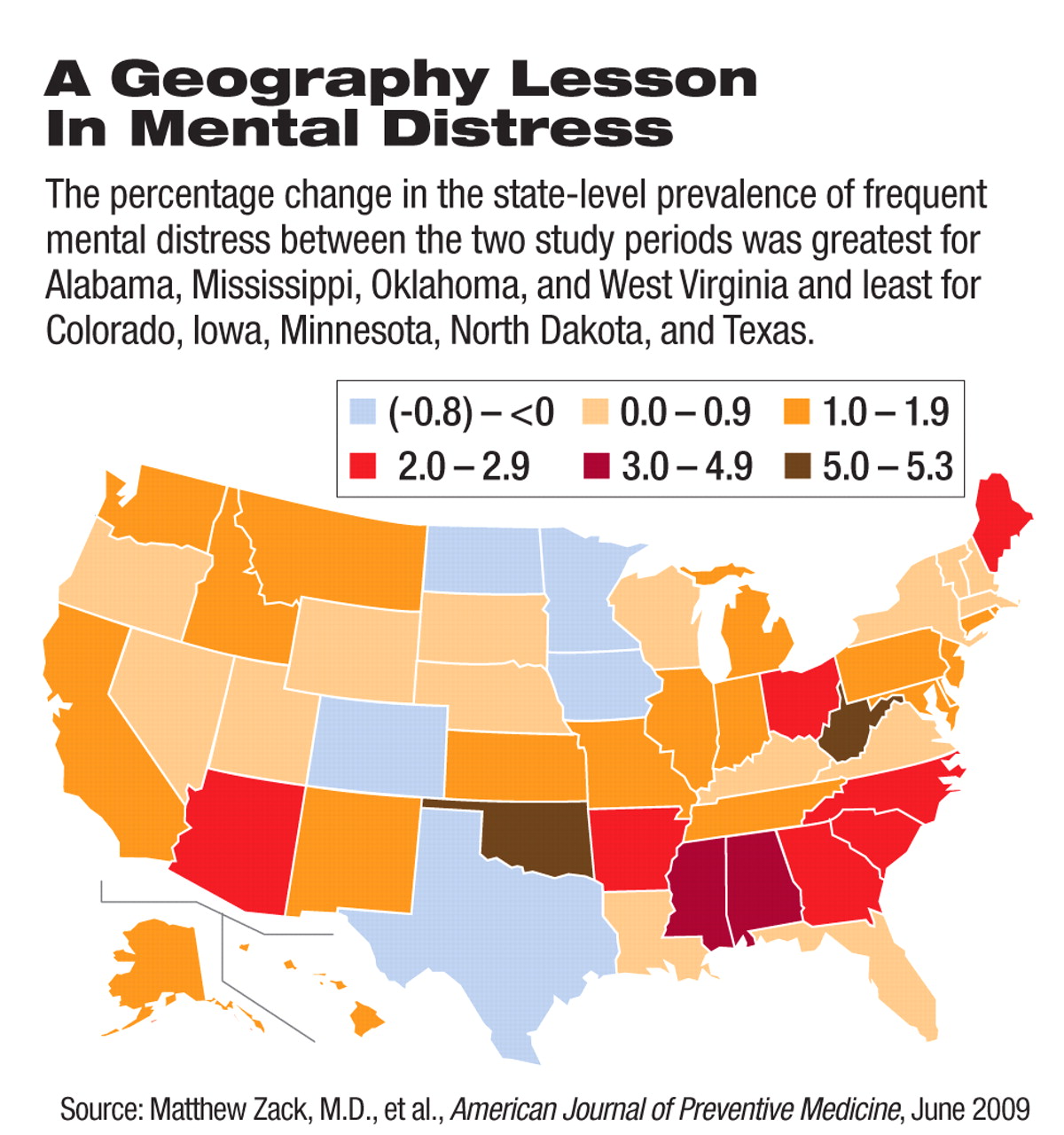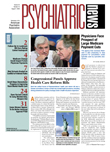If the rustling palm fronds and azure Pacific won't lure you to the 2011 APA annual meeting in Hawaii, perhaps this tidbit will do the trick: A new study has found that the prevalence of mental distress is lower in Hawaii than in the other 49 states.
The study was headed by Matthew Zack, M.D., a medical epidemiologist with the Centers for Disease Control and Prevention in Atlanta. Results were published in the June American Journal of Preventive Medicine. Preliminary findings were presented as a poster last year at APA's annual meeting (Psychiatric News, July 4, 2008).
During the period 1993 to 2001, more than 1 million adult Americans throughout the United States were randomly interviewed by phone to learn whether they had experienced frequent mental distress during the previous month. “Frequent mental distress” was defined as having 14 or more days during the previous month where one felt stressed, depressed, or had emotional problems. During the period 2003 to 2006, still another random sample of more than 1 million adult Americans throughout the United States were interviewed with the same intent. Zack and his colleagues combined survey results from the two periods to assess geographic patterns in perceived mental distress.
The prevalence of adult mental distress for the combined two periods was 9 percent overall, ranging from a low of 7 percent in Hawaii to a high of 14 percent in Kentucky. Moreover, multistate geographic patterns were evident for the combined two periods. The prevalence of frequent mental distress was less than 8 percent in adjoining parts of the upper Midwest (North Dakota, South Dakota, Nebraska, Kansas, Minnesota, Iowa, Missouri, Wisconsin, and Illinois). The prevalence of frequent mental distress was 12 percent or more in Kentucky and states bordering it (Indiana, Ohio, West Virginia, Virginia, and Tennessee).
Zack was surprised to find such large geographic variations in Americans' mental distress, he told Psychiatric News. “We don't yet know why these differences occurred, but plan to study it in the next year,” he said. “One possible explanation is socioeconomic. In general, those with lower socioeconomic status report more frequent mental distress than those with higher socioeconomic status. Another possible explanation is cultural. Individuals whose ancestors originated in Asia or in the Pacific islands (no matter what state they now live in) report less mental distress than individuals whose ancestors originated in other areas. A third possible explanation is that individuals in some geographic areas might have experienced more illnesses, injuries, and other stressful events than individuals in other areas.”
The researchers also looked to see whether there was any change in the annual prevalence of frequent mental distress among adults from their first period of data collection to their second. There was, they found: It increased from 9 percent to 10 percent. Although this increase was small, it was statistically significant, Zack noted, and suggests that the frequency of mental distress in the United States “has probably changed over time, with increases in most areas.”
“Geographic Patterns of Frequent Mental Distress: U.S. Adults, 1993-2001 and 2003-2006” is posted at<www.ajpm-online.net/article/S0749-3797(09)00153-6>.▪

